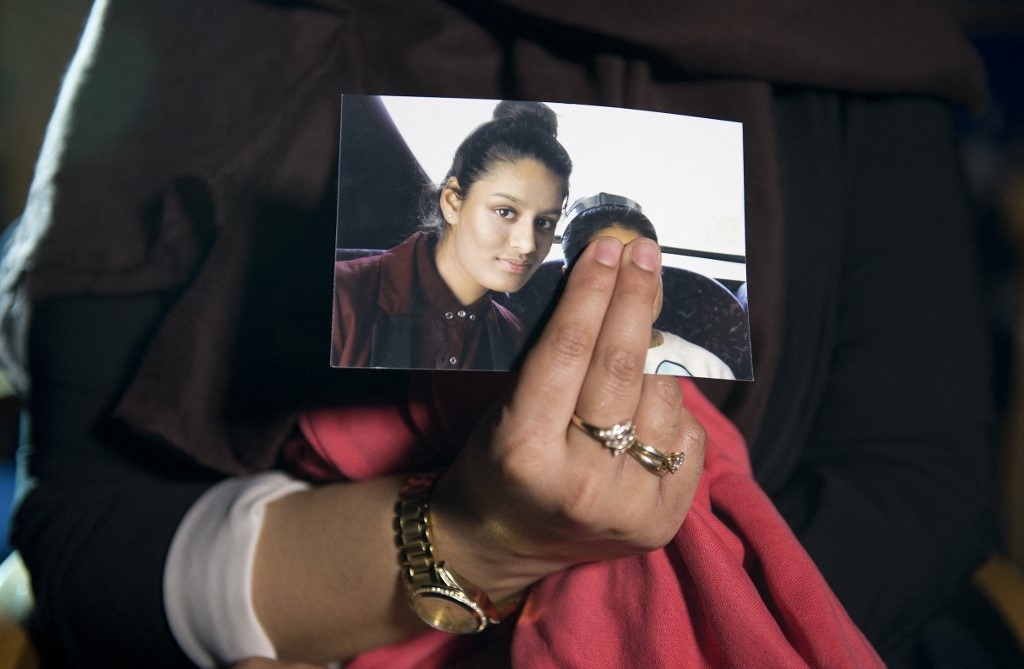Shamima Begum: Canadian spy claims could jeopardise UK's legal case

When reports broke suggesting that the United Kingdom authorities helped cover up the role of a Canadian intelligence operative in trafficking Shamima Begum to Syria as a teenager, British academic Rizwaan Sabir, who focuses on counter-terrorism, said he was not surprised.
On Tuesday, new reports suggested Scotland Yard was informed that Begum and her two friends were trafficked into Syria by a smuggler who was a double agent working both for the Islamic State group and Canadian intelligence.
But instead of using that intelligence to find Begum and her friends, the reports suggest British officials helped Canada cover up its role.
Canada recruited Mohammed al-Rashed, an alleged human trafficker, when he reportedly applied for asylum at the Canadian embassy in Jordan, and he is believed to have facilitated the journeys of dozens more British nationals into IS-controlled Syria.
Sabir said the new reports raised more questions than answers for the British media and security services in how they treated Begum and her family.
New MEE newsletter: Jerusalem Dispatch
Sign up to get the latest insights and analysis on Israel-Palestine, alongside Turkey Unpacked and other MEE newsletters
"This whole saga illustrates how disposable Muslim lives are to intelligence agencies given these vulnerable schoolgirls were proactively trafficked into a warzone to be used as bait to secure intelligence data on others,” Sabir, an assistant professor specialising in counterterrorism at Liverpool John Moores University in the UK, told Middle East Eye.
Old news?
Turkish outlets first reported claims in 2015 that Rashed worked with Canada's intelligence services after he was arrested by Ankara, but the reports received little coverage in the UK despite the matter being raised by Turkey's foreign minister.
“Had this information been reported and investigated by the media more thoroughly when the story broke, it is highly likely that it would have weakened the UK government's ability to deprive Shamima Begum of her citizenship and weakened their chances of introducing new laws to deprive others of their citizenship too," said Sabir.
"The outcomes of failing to report or investigate this issue cannot be underestimated."
Begum went to Syria in 2015, at the height of IS's control of large areas of Syria and Iraq, when she was 15 years old, with two of her friends, Kadiza Sultana and Amira Abase.
Years later, journalists tracked down the East Londoner, who was then pregnant, in a camp for families suspected of associations with IS in northern Syria.
Stateless
But Begum remains stranded and stateless in the Kurdish-controlled detention camp after former Home Secretary Sajid Javid stripped her of her British citizenship in 2019.
Since then, Begum has fought to regain her citizenship and return to London. Ramya Jaidev, the co-founder of the Windrush Lives advocacy group which has campaigned against recent extensions of government citizenship-stripping powers, argues that this information could fundamentally change Begum's deprivation case.
"The London Metropolitan Police falls under the purview of the Home Office, and if they did in fact have this information, as the reports suggest, then there is a big question of whether Sajid Javid was also aware of this information when he decided to deprive Begum of her citizenship," Jaidev told MEE.
Jaidev also highlighted how the new report could impact Britain's case against Begum, who has been fighting to have her citizenship restored and to return to the UK to face trial.
"This new report could also have major consequences for the Home Office who have fought against Begum being given her citizenship to the Supreme Court. The British courts are unlikely to look kindly upon information that information like this was withheld from them - if that in fact happened," said Jaidev.
"Assuming the Home Office has known some of this for some time, what that shows us is that, once again, this is a department - and in a government - that has no regard for justice or objective reality; rolling back citizenship rights for some people appears to be something the Tories take great joy in, although it's important to note that citizenship rights have been eroded by other governments as well."
Begum's lawyers and family have long argued that she was groomed and trafficked to Syria. Critics have also said the media has demonised her since she was found in northern Syria.
Fatima Rajina, a researcher at the Stephen Lawrence Research Centre at De Montford University in Leicester, who has written extensively on the media representation of Begum, believes these reports are too little too late.
"There are so many other questions to consider here: Did Javid, the then-Home Secretary, know about this? If so, was this used as a premise to inject a two-tier citizenship into law? Why was her citizenship stripped and she left stranded in a refugee camp?” Rajina asked.
"This important detail of a smuggler working for Canadian intelligence could have shaped the framing of Begum in a different way that did not dehumanise her since being deprived of her British citizenship.
"Why did the media not investigate these claims when they first came out in 2015, and when it was investigated? Why was it made public by the Times years later, whilst simultaneously promoting a new book by a [former] Times journalist, when this information could have helped in potentially bringing Shamima home instead of making her stateless?"
Middle East Eye delivers independent and unrivalled coverage and analysis of the Middle East, North Africa and beyond. To learn more about republishing this content and the associated fees, please fill out this form. More about MEE can be found here.





